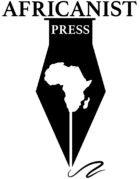
The higher education crisis in Sierra Leone is the focus of an international investigation, which sheds light into the history of an ongoing practice of questionable promotions criteria that is a key factor in the ineptitude and management problems bedeviling the university.
The recent investigation centered, in particular, on the academic records and qualifications of the current Acting Vice Chancellor of the University of Sierra Leone, Ekundayo J. D. Thompson. Thompson’s professorial promotion and subsequent appointment to head the university are at the heart of two separate investigations. The said investigations’ reports seriously question the credibility of the academic publications listed against Thompson’s name, which may have formed part of the folio that was probably used to determine his qualifications for a professorial position.
The investigation report uncovered evidence that challenges both the validity of Thompson’s qualifications and his promotion. The findings, which are contained in the above report entitled “Ekundayo Thompson’s Amazon Findings”, point to a long chain of irregularities ranging from academic fraud and intellectual deception. It gives a clear case of how Ekundayo Thompson’s listed publications on Amazon, for instance, do not qualify as academic publications because they failed to meet the publishing industry’s publication standards and distribution requirements. The report states, among other things, that Thompson’s listed publications are not formally published academic materials or standard trade publications.
It raises a question regarding the list of publications that were used as materials to determine his suitability for a professorial promotion. The report clearly states that if the listed publications on Amazon were part of the material, then the scoring criteria used failed to meet the university’s required benchmarks for professorial promotions. Ekundayo Thompson had listed four publications on Amazon, claiming the titles were all published between 1992 and 1997. The listed titles include “The Prince of AALAE: Corruption and Mismanagement in an African NGO”, “Curriculum Development in Non-formal Education, Some Thoughts on Adult Education: A Collection of Papers and Articles”, and “The Umm Kedddada [sic] Experience: Report of a People-to- People Visit to Umm Keddada Province, North Darfur, Republic of Sudan, January 25-February 9, 1995.”
The investigation report, however, states that the Amazon records do not show evidence that any of the listed items were actually bought or sold on the Amazon’s space where they were listed. And there is no record on Amazon to indicate that the items were actually re-published.
“Ekundayo Thompson’s listings on Amazon were placed through the third method,” the report stated. It was discovered that an independent squatter trader on Amazon listed Thompson’s supposed publication as general commodities for sale and not as books. This actually meant that the so-called publications did not meet any of the industry standards used for book publication and distribution.
It adds that Thompson’s listed publications have “no ISBN numbers, which every published book requires. In addition, they are not in any book format. They are in an unknown binding format. This being the case, they were never published through any method: traditional or self-publishing.”
“If such items were to be actually available, it means that a third party can only sell them as used items (supposedly used books) or as republished books. The records on Amazon show that at no time were any of the listed items actually bought or sold on the Amazon space that they were listed. And there is no record on Amazon to indicate that the items were republished. This only means that the items were listed but were not truly available and cannot be accessed or bought from any retailer,” the investigators reported.
The report clearly disputes claims on the availability of Thompson’s publications on Amazon’s book distribution channels or any place whatsoever.
It concludes that “Ekundayo Thompson, has no conventionally published book on Amazon.com at present. The listed books do not exist on Amazon, and they were never made available on Amazon for actual sale. It is possible that the information was placed on Amazon for a specific purpose other than trade, which is unusual with the procedures of listings followed by Amazon booksellers.”
In one case, the investigation pointed out a serious case of ISBN theft by Thompson. It was found that one of the identifiers stitched on one of Thompson’s supposed publications, carried identifier numbers that belonged to a book on non-formal education published in Mexico.
This raises a significant question: Did Ekundayo Thompson set out to create the impression that he owned academic publications in order to achieve academic positions without due merit?

